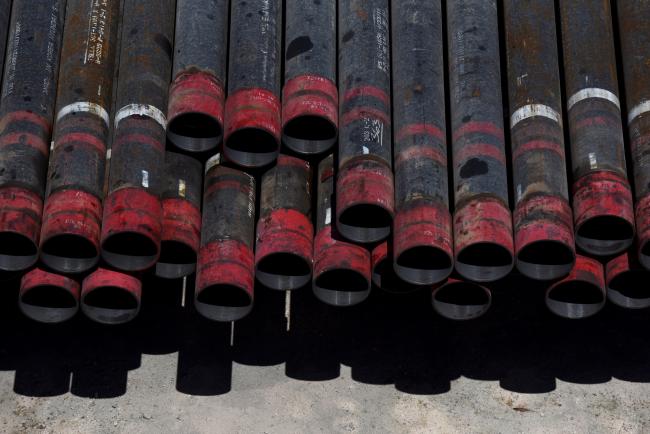(Bloomberg) -- In the same week that Saudi Arabia made a veiled threat to use oil as a political weapon, the U.S. offered another reminder of its growing energy independence as government data showed shale oil production is forecast to reach a fresh record in November.
Production from the nation’s major shale plays is expected to rise by almost 100,000 barrels a day month-on-month in November, to 7.71 million barrels a day, according to the U.S. Energy Information Administration’s monthly Drilling Productivity Report.
Half of this increase can be found in the Permian basin of Texas and New Mexico, with production expected to grow by 53,000 barrels a day to 3.55 million -- about 100,000 barrels a day more than OPEC member Iran managed in September.
A closer look at shale breakevens gives a clue as to how the Permian might be managing this relentless expansion. The cost to drill in the Midland basin has fallen by about 50 percent since January 2014, to $43.94 a barrel as of end-September, according to BTU Analytics data. That compares with a spot price for Midland crude at $66.48 a barrel as of Wednesday.
The forecast increase in shale output comes despite U.S. drilling activity remaining relatively unchanged over the last few weeks. The number of oil rigs across the U.S. has been hovering in the 860s, according to Baker Hughes data, but is still up over 100 since January.
Growth in supply from rival producers-- notably U.S. shale -- saw the Organization of Petroleum Exporting Countries cut its estimate for global demand for its crude next year. Forecasts of slowing demand growth and rising U.S. production will mean the oil market is “likely to be amply supplied next year,” Commerzbank AG (DE:CBKG) said in a note on Tuesday.
Shale crude in Texas and North Dakota sells for about $20 a barrel more than the breakeven cost, meaning producers could potentially make as much money with WTI averaging $67 a barrel as they were when the U.S. benchmark was above $100.
While the pace of U.S. output growth is impressive, U.S. refineries won’t be able to process much of this domestically-produced crude. That’s because they’re configured for heavier grades, such as ones readily available from the Persian Gulf -- Saudi Arabia in particular. Another reason why Trump will want the current political firestorm over the disappearance of Jamal Khashoggi to reach a swift conclusion.
